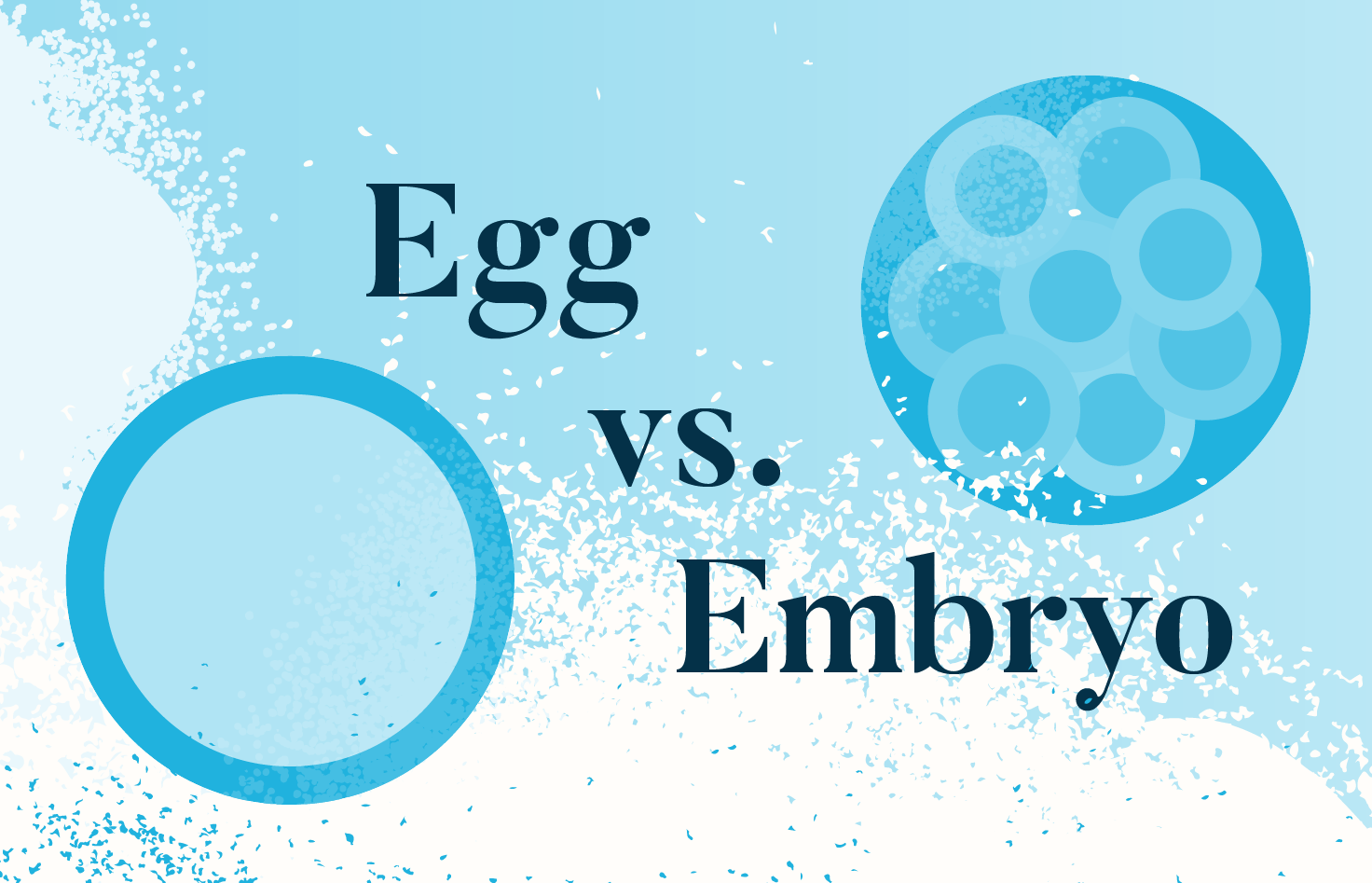
Egg Freezing vs. Embryo Freezing: 5 Things to Consider
In today's world, we have more choices than ever when it comes to family planning. Among these choices, two options stand out: egg freezing and embryo freezing. Both methods offer the potential to preserve fertility and extend the timeline for starting a family. However, deciding between these two options is a significant decision, and there are several factors to consider.
Let’s explore five key considerations to help you make an informed choice between egg freezing and embryo freezing:
1. Your Current Relationship Status & Future Plans
One of the most critical factors to consider when deciding between egg freezing and embryo freezing is your current relationship status and future plans. If you're currently in a committed relationship and plan to have children with your partner, embryo freezing may be the more suitable option. Embryo freezing involves fertilizing your eggs with your partner's sperm and then freezing the resulting embryos. This option allows both genetic parents to be involved and can be an excellent choice if you're sure about your partner and your desire to have children together.
On the other hand, if you're not in a committed relationship or prefer to preserve your eggs without committing to a specific partner, egg freezing may be a better choice. Egg freezing allows you to freeze your unfertilized eggs, preserving your genetic material until you're ready to use them. It offers flexibility and autonomy in family planning, allowing you to make decisions about sperm donors or partners later on.
It is important to remember that once eggs are fertilized and become embryos, both partners must provide consent over the fate of those embryos because they are shared property.
2. Age & Ovarian Reserve
Age plays a crucial role in fertility, and it's essential to consider your age when deciding between egg freezing and embryo freezing. Women are born with a finite number of eggs, and the quality and quantity of eggs decrease as they age. Generally, younger women have healthier and more viable eggs, making egg freezing more successful for those in their 20s and early 30s.
If you're in your late 30s or older and already have a partner, embryo freezing might be the better option due to the potential decrease in egg quality. In this case, it's essential to consult with a fertility specialist to assess your ovarian reserve and discuss the chances of success with both methods.
3. Personal & Medical History
Your personal and medical history should also influence your choice between egg freezing and embryo freezing. If you have certain medical conditions or a family history of genetic disorders, you might want to consider embryo freezing. Pre-implantation genetic testing (PGT) can be performed on embryos before transfer, helping identify and select embryos without genetic abnormalities.
Additionally, if you have a history of fertility issues, such as polycystic ovary syndrome (PCOS) or endometriosis, your fertility specialist may recommend one method over the other based on your individual circumstances. It's crucial to have a thorough discussion with your healthcare provider to determine the best course of action.
4. Emotional & Psychological Considerations
The decision to freeze eggs or embryos is not just a medical one; it also has emotional and psychological implications. Many women find the process of egg retrieval emotionally challenging, as it involves hormone injections and a minor surgical procedure. Embryo freezing may involve fewer medical interventions since you’ll have more information about your likelihood of success after a given cycle. There’s no way to test eggs as a standalone cell to evaluate whether they are “good.” Genetic testing can only be completed once an egg has been fertilized and developed into a blastocyst.
Consider how you feel about these aspects and how they align with your emotional well-being. If you want a greater level of certainty, embryo freezing might be a more emotionally manageable option. However, if you value the independence and flexibility that egg freezing offers, it could be the better choice for your overall well-being.
5. Financial Considerations
Lastly, it's crucial to consider the financial aspects of egg freezing and embryo freezing. Both procedures can be expensive, and costs can vary depending on your location, the clinic you choose, and your individual circumstances. Generally, egg freezing tends to be less expensive than embryo freezing because it doesn't involve the additional step of fertilization and embryo culture.
Before making a decision, it's essential to research the costs associated with each option, including the initial procedures, storage fees, and any additional treatments you may need down the road. You should also check if your health insurance covers any part of the fertility preservation process.
If finances aren’t a barrier and your age and ovarian reserve allow for it, you may discuss completing two cycles with your fertility specialist – one to freeze eggs and one to freeze embryos.
—
Deciding between egg freezing and embryo freezing is a complex decision that requires careful consideration of various factors. Your current relationship status, age, personal and medical history, emotional well-being, and financial situation all play a significant role in making the right choice. Ultimately, the decision should be a well-informed one that aligns with your goals and values. Consulting with a fertility specialist can provide you with personalized guidance and help you make the best decision for your unique circumstances. Remember that both egg freezing and embryo freezing offer the opportunity to preserve your fertility and extend your family planning options, giving you more control over your reproductive future.
